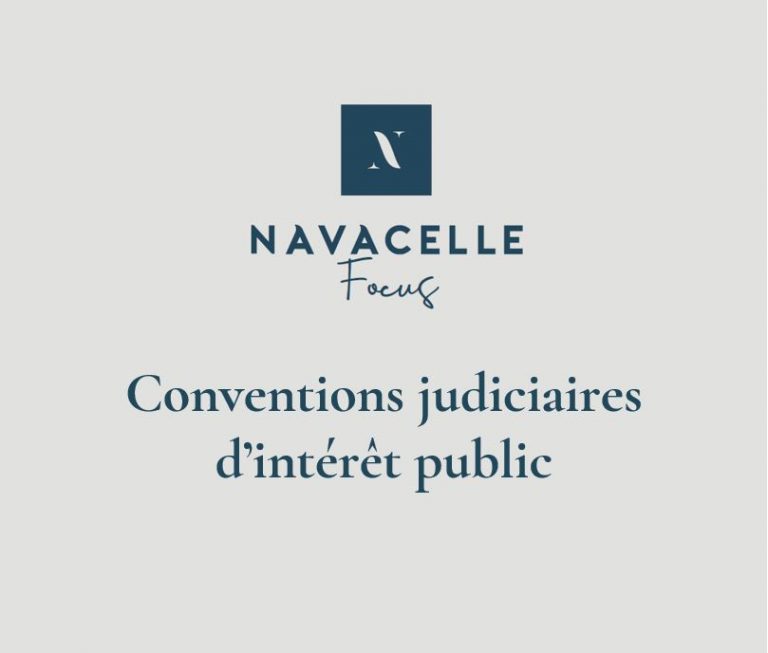The development of internal investigations triggered a change of paradigm through the intervention of attorney ab initio, prior to any litigation, rather than in its traditional role ex post, after the launch of criminal prosecutions.
This new stance raises challenges for attorneys tasked with expertise or assistance and counselling activities while remaining compelled to comply with strict professional ethics.
Through a resolution passed in March 2016, the Paris Bar Council considered that internal investigations fell within attorneys’ professional field. Six months later, in September, the Paris Bar Council introduced the “Vademecum for attorneys tasked with carrying out an internal investigation”[notehttp://www.avocatparis.org/mon-metier-davocat/publications-du-conseil/nouvelle-annexe-xxiv-vademecum-de-lavocat-charge-dune[/note] providing for recommendations to be inserted in the National Regulations of the profession1 and aiming at regulating this new practice.
General and specific recommendations to be incorporated in the RIBP (internal rules of the Paris Bar) were thus set to provide a minimal framework to the activity of internal investigation and ensure that attorneys do not circumvent their ethical obligations.
General recommendations for the activity of internal investigation
The Vademecum provides that any attorney carrying out an internal investigation must comply with the core principles of the profession: conscience, independence, humanity, loyalty, delicacy, moderation, competence and prudence2.
Further, the Vademecum recalls that attorney mission is non-coercive. Hence, if an attorney interviews third parties for the purpose of carrying out an internal investigation, he/she has to inform the interviewee that he/she is not compelled to answer the questions and that the exchanges may ultimately be transcribed in a report3.
Specific recommendations for the activity of internal investigation
• Assistance and counselling activities
An attorney may be mandated to carry out an internal investigation aimed at giving an opinion or advice on a given factual situation in the light of positive law. In this case, the field of intervention falls within his mission of advice and assistance and the mandated attorney may be the usual attorney of the client, without further restrictions.
The attorney will in this case be bound by the attorney-client privilege towards his//her client exclusively – the latter being free, as opposed to his counsel, to reveal information gathered during the investigation. To ensure transparency of the investigation, the attorney will also have to inform the individuals he/she interviews that he/she acts on behalf of the client who retained him/her to carry out this investigation.
If it appears that the interviewee may be held accountable for any wrongdoing at the outcome of the investigation, the attorney will then have to inform him/her that he/she may be assisted by an attorney. An attorney failing to respect this obligation would expose himself/herself to disciplinary sanctions (French legislator limiting measures to disciplinary sanctions not to impose undue burden on French attorneys compared to UK or US counsels not subject to equivalent obligations).
After the investigation, the attorney may assist his/her client in a mutual agreement procedure or in a dispute, related or subsequent to the internal investigation, but will refrain from representing his/her client in such procedure if it is directed against an individual that he/she has interviewed during the internal investigation4. In any case, it is impossible for an attorney who conducted an internal investigation to take legal action against anyone he/she interviewed.
• Expertise activity
An attorney may also be tasked with carrying out an internal investigation in the context of an expertise activity, the attorney being in this case mandated by two parties (a legal authority and a company or one of its employees or managers)5. The attorney is then a neutral and objective third party competent to assess a given factual situation6.
In any case, the attorney will refrain from accepting such mission if he/she already is the counsel of the person retaining him/her. This prohibition stems from the fact that ethical guidelines applicable to attorneys acting as an expert or as a counsel are diametrically opposed, since an attorney in the context of an expertise activity is not bound by the attorney-client privilege (the attorney being mandated to provide a report to every parties involved).
The attorney must therefore refrain from representing one of the parties in any other procedure relating to or arising from the internal investigation, even in amicable proceedings7.
* * *
Internal investigations constitute a genuine revolution in the missions entrusted to criminal attorneys: before Sapin II law of 2016 providing for the implementation of compliance programs and setting up a new settlement framework, judicial confrontation and absolute secrecy were prevailing, since then, a move has been made to cooperation and transparency.
Recent enforcement actions have demonstrated increasing cooperation between French authorities and foreign enforcers, including US and UK enforcers8. The real stake for Sapin II law will then to become a serious competitor to FCPA and UKBA to contain their extraterritorial reach and ensure respect with non bis in idem principle.














